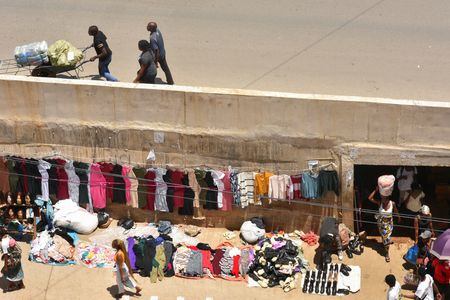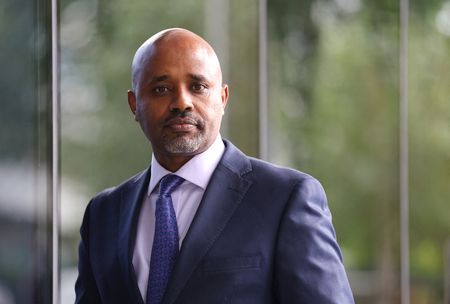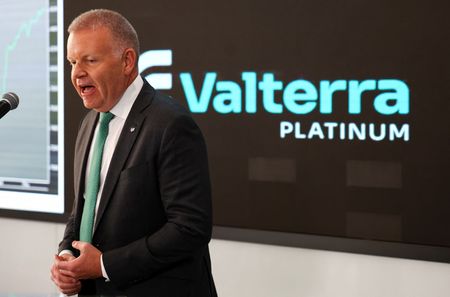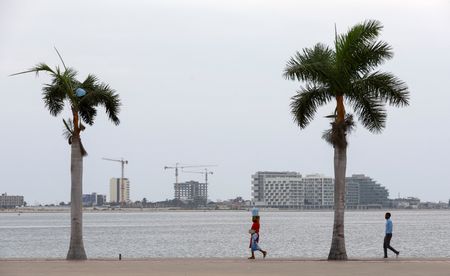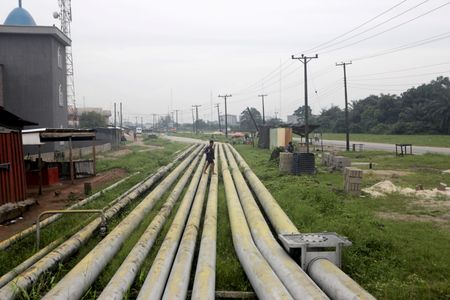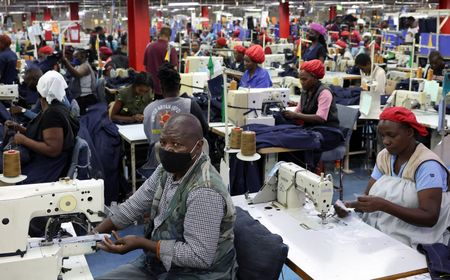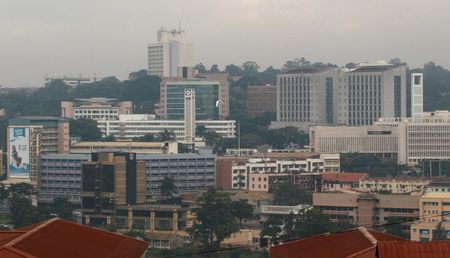By Marc Jones
LONDON (Reuters) -Zambia’s debt restructuring remains snagged on its thorny negotiations with the African Export-Import Bank and won’t be resolved until next year, one of its top finance officials has told Reuters.
Zambia, one of the world’s top copper producers but also one of its most indebted, struck a write-down deal with its main private sector creditors last June after a 3-1/2-year slog.
But an unresolved issue over whether Afreximbank and the Trade and Development Bank should also take a hit or be spared from writedowns – like the International Monetary Fund and World Bank – has prevented Lusaka from completing the process and exiting default.
“Unfortunately, we are a guinea pig,” Zambia’s Secretary to the Treasury Felix Nkulukusa said in an interview in London late on Thursday. “Everything is being tested on us.”
AFREXIM FEARS CUT IN CREDIT RATING
While more intensive negotiations started with TDB two months’ ago, Nkulukusa said there has been little progress with Afrexim, which fears its credit rating will be slashed if it is no longer regarded as having so-called ‘preferred creditor status’.
Government-backed development banks typically benefit from it to give them a layer of protection and enable them to lend at cheaper interest rates and for projects that commercial banks might see as too risky and shy away from.
Afrexim and TDB account for just under 8% of the debt Zambia has earmarked for restructuring, but given what is at stake, it is proving a difficult impasse to overcome.
“We still are stuck,” Nkulukusa said. “Afrexim and TDB, that is what remains (to be resolved) and probably that will take us into 2026,” he said, adding that he was “very positive that everything will get sorted out next year”.
That is likely to coincide with a ramp-up towards a presidential election scheduled for August, where Hakainde Hichilema’s government currently stands a good chance of winning.
ZAMBIA WANTS IMF BAILOUT EXTENDED
It is also in talks with the International Monetary Fund about a one-year extension of its current $1.3 billion bailout programme that runs until January. That would get it past the election and allow whoever wins to agree a new, longer-term IMF deal.
Nkulukusa said Zambia’s economy was now improving after its default and a severe drought over the last couple of years.
Its gross domestic product is expected to grow by 5.8% this year and 6.4% in 2026. Revenues from the mining sector have helped stabilise the exchange rate, while inflation is projected to slow to about 7% by early next year from almost 13% now.
Resolving the deadlock over restructuring is now key to getting investment flowing back into the country and funding plans for major road and rail improvements.
Given the importance of Afrexim and TDB for the region, Nkulukusa said it might ultimately require a pan-African or international fix to support them.
Another option could be to go back to a previously floated idea where the banks do what the World Bank and others typically do in restructurings, and provide additional concessional loans to Zambia.
Lessons will be learned from what is happening now, said Nkulukusa, and given Afrexim and TDB’s importance for the region it might ultimately require a pan-African or international fix to support them.
“There will be some efficient and effective way that will be able to protect these institutions while contributing towards the restructuring for those countries that will have challenges.”
(Reporting by Marc JonesEditing by Karin Strohecker and Gareth Jones)

